Recent AE graduates are headed to industry, academia, and beyond after graduation.
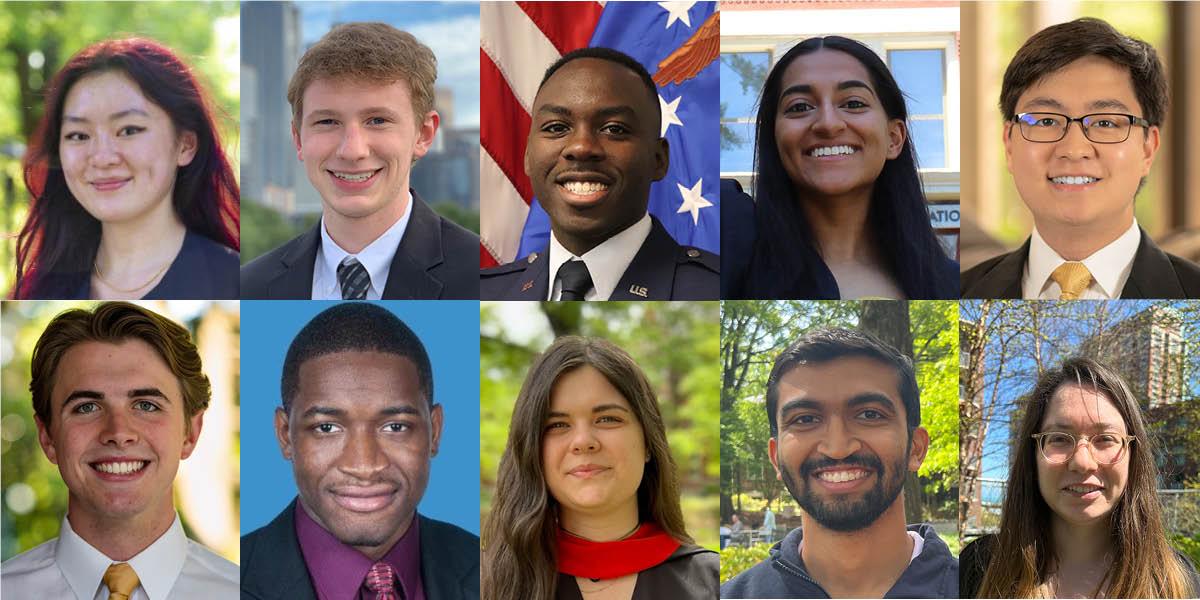
Siddhi Ameser
BSAE 2023
What is your next adventure?
Literally, less than a month after I graduate, I begin active duty at Eglin Air Force Base in Florida, where I will be working with research engineers with Air Force Research Labs (AFRL). I commission as a Second Lieutenant the day before graduation, and I won’t have to do any sort of basic training because I did it between my second and third years of college. My job in the Air Force is to be that bridge between the civilian engineers and the military, and my first assignment is with the multi-agent teaming division within the Munitions Directorate. So, I'll be a developmental engineer for the Air Force for the next four years. I didn't want to pursue a master’s degree right now because I just wanted to get some hands-on experience first.
What about your next adventure are you most looking forward to?
I think I'm looking forward to working behind the scenes in the defense world. I’m also thrilled to be working on cutting-edge technology. And yeah, I'm also going to be living on the beach, so that's pretty nice.
Did you have any previous co-op, internship, or research experience in this area?
Instead of doing the internship I was offered, I did a study abroad in Ireland, through the AE Limerick program, and that was fun. Even though I didn't get a chance to do an internship, I did propulsion research with ASDL on campus. We did engine modifications and actually got to do some full-scale tests in the combustion lab.
How did your educational experience at Georgia Tech help you to achieve your goals?
First off, the rigor is going to translate into my being able to take on anything they throw at me, especially since I'm new to the service. Tech has done a really good job with being hard, but in a good way. To me, all this struggle means being able to do anything that they ask of me and not giving up in the face of a challenge. So, I got that from Georgia Tech.
Secondly, I collaborated with other people in my major and people in different fields, which was great exposure. I learned to work in a team. The Aero Maker Space was a big team too, with the best people in the major, for sure. Everyone wanted to help each other out. If people come into the space, we wanted to make sure they got what they needed for their project, and seeing it through to the end. There’s teamwork in a lot of labs and classes at Tech, just anywhere you look.
Also, ROTC really taught me a lot. It's a good leadership program, but it's also learning about current events and being aware of what's going on in the world.
What advice would you give to an underclassman who would like to follow the same path?
I'd say don't be afraid to put yourself out there. I feel like a lot of people don't really volunteer for things. They just sort of let life happen to them. Go out and, do life yourself and explore and find new things. Find your passion and then just stick to it. I definitely made all of my friends in Grand Challenges and ROTC in freshman year. I was on the rowing team for a little bit, but I think that was a good exposure too. Just join some other clubs and activities on campus.
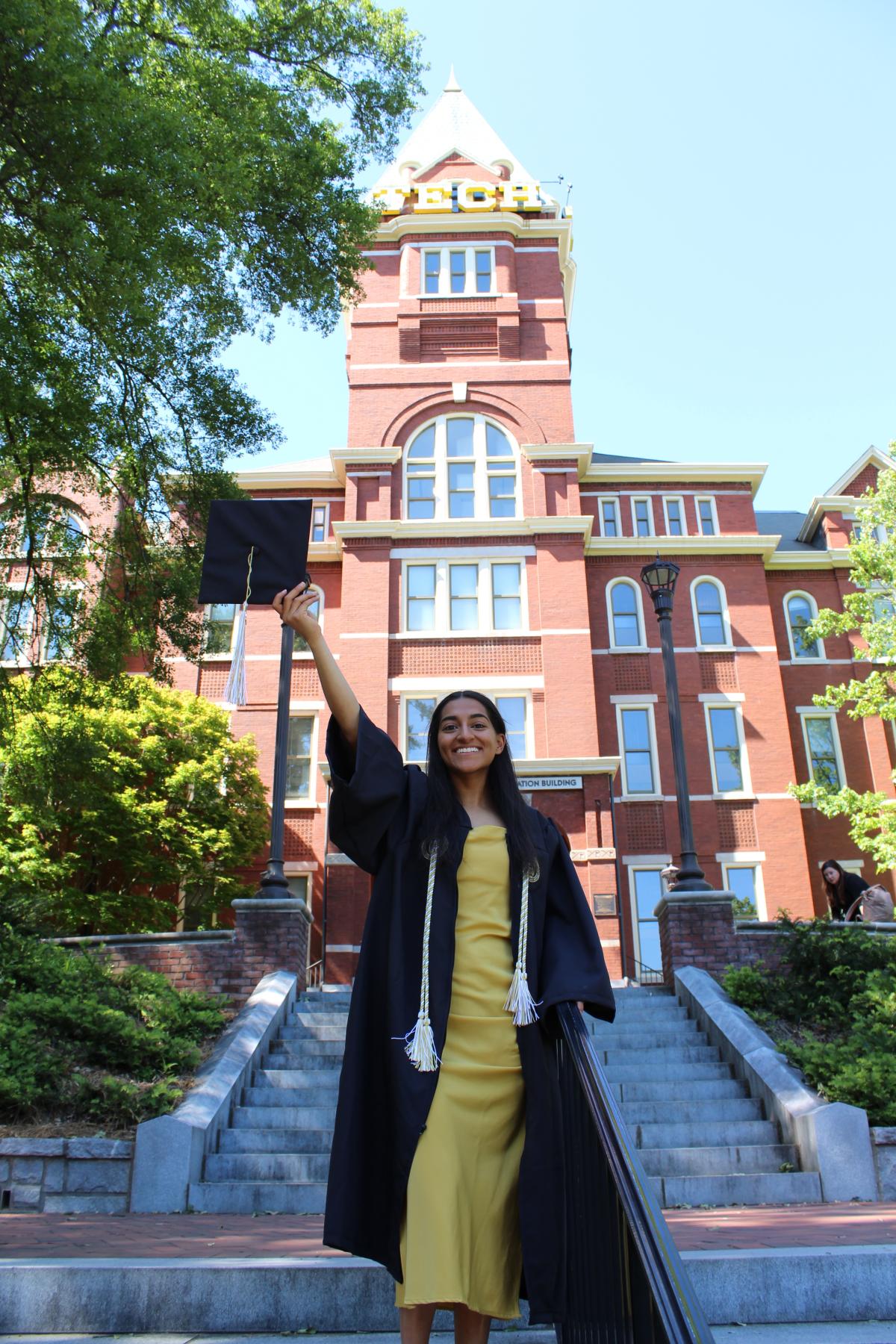
Jesudunsin Awodele
BSAE 2023
What is your next adventure?
I’ll become a 2nd Lieutenant in the U.S. Air Force in two weeks. I'm commissioning on Georgia Tech. I was selected for a program where my first assignment will be earning my master’s degree here at Georgia Tech. They gave me eighteen months to complete it, but I will complete it in twelve months. So, I will be sticking around for another year, working in the Aerospace Systems Design Laboratory (ASDL). They will be sponsoring my studies, so I’m getting paid to study. I’m grateful to have this opportunity.
Additionally, I will continue my work in AeroAfroAstro as the new President.
What about your next adventure are you most looking forward to?
I’m looking forward to serving as the President of AeroAstroAfro. We accomplished a lot in the first year, and I can’t wait to continue that work. I'm also looking forward to getting in on early research and development work on the Air Force side of things for hypersonic systems because I want to get an assignment in development in the Air Force Research Laboratory (AFRL). They have sites that I’m interested in Wright-Patterson, Ohio, or Eglin Air Force Base in Florida, and of course, there's also the Pentagon.
Did you have any previous co-op, internship, or research experience in this area?
For my first internship, I was selected for the Pattie Grace Smith Fellowship in 2021. My next internship was at Boeing, St. Louis, working in model-based systems engineering for the MQ 25. It was virtual because of COVID at the time. As a junior in the Fall of 2021, I worked and conducted research in the Aerothermodynamics Research and Technology Laboratory (ARTLAB) under Doctor Ruffin. Starting in the Spring of 2022, I joined the Georgia Tech Research Institute (GTRI) in the quantum systems division while working at the ARTLAB and ROTC. During that summer, I returned to Boeing, St. Louis, and worked as an integration engineer intern in the same program.When classes resumed, I returned to GTRI but worked in the systems Engineering research division and have been working there for the last two semesters. I was also still in ARTLAB this semester.
How did your educational experience at Georgia Tech help you to achieve your goals?
I learned how to take advantage of available opportunities, what I was capable of, and how to seek help. I was struggling and needed to find the right person to pivot me in the right direction to succeed. I owe a lot to Professor Griendling, who helped me when I struggled. She kept me on a vector check and helped me to find opportunities like the Georgia Space Grant Consortium, which led to my Pattie Grace Smith Fellowship, and then the Boeing internship. Everything kind of cascades and builds your knowledge and skill. My education at Georgia Tech, key relationships, and internships propelled me in the right direction.
Additionally, my education here has really made me confident in my ability to work under pressure. I’ll use a balloon analogy, even though that may seem weird. In the beginning, the balloon is small, then when you blow it up, it expands. If you let the air out of the balloon is bigger than when it started. When you go to blow it up again, it can handle more air. After each experience, I expanded to handle more and different tasks. In the beginning, I couldn’t have handled everything I currently handle, such as managing a club, participating in ROTC, and conducting research simultaneously. I’ve expanded my ability to manage a lot of different tasks.
What advice would you give to an underclassman who would like to follow the same path?
Ask a lot of questions because one of the things I attribute to not just my success but my helping other people be successful is asking questions. Be curious. Learn about all of the different research areas, labs, and research opportunities. I've told some friends to work at a lab if you're interested in that area. You should always be learning things. It never really ends. If you get too comfortable then you stop asking questions, and then you stop learning.
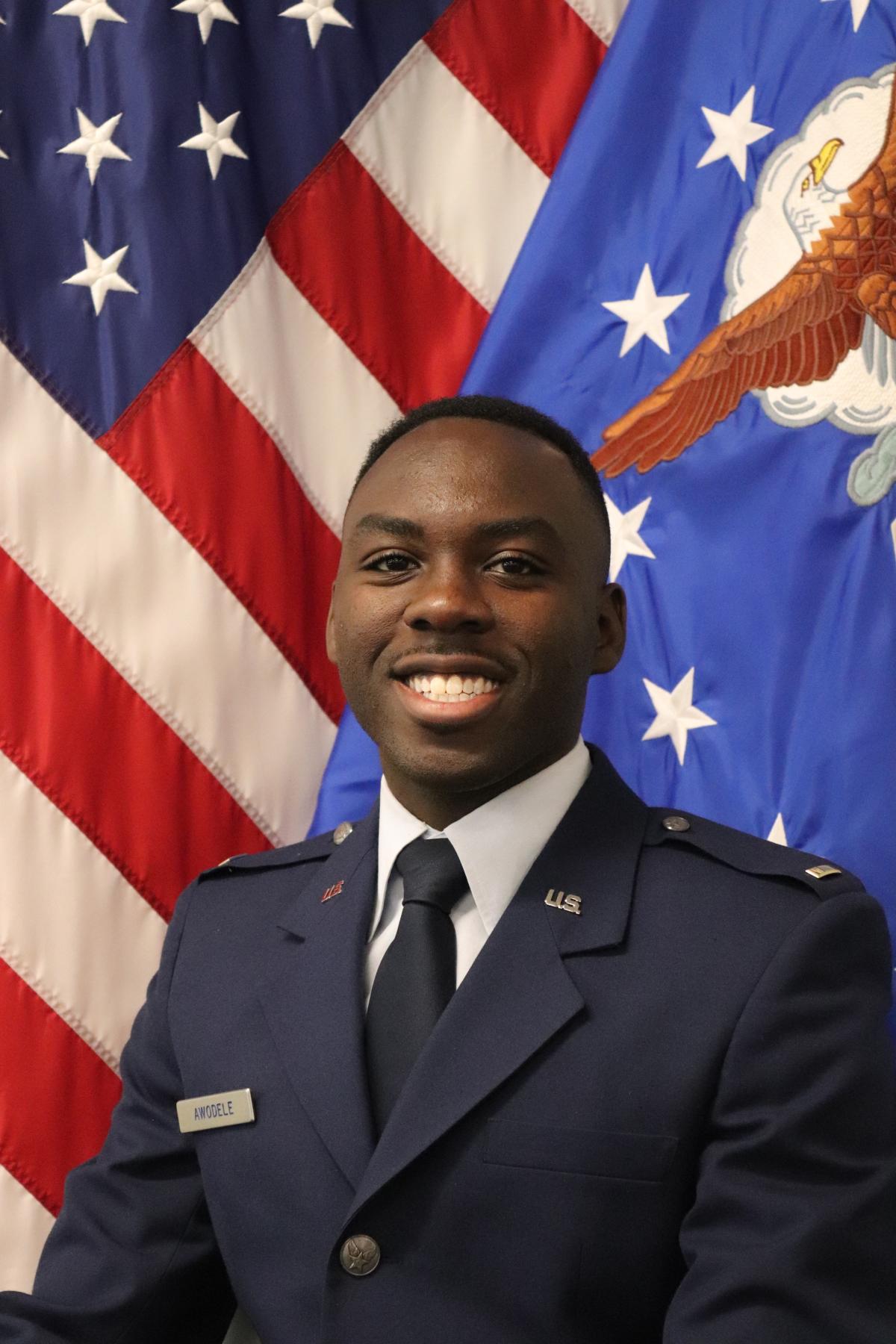
Paul Carter
MSAE 2023, BSAE 2021
What is your next adventure?
Later this summer, I am going to NASA JPL to start as a telecommunications engineer.
What about your next adventure are you most looking forward to?
I’m excited to be moving to California. I’ve lived in Georgia my whole life and Atlanta has been home for the last six years, so I’m excited to go somewhere new. I’ve been interested in working there since freshman year after attending a JPL info session. It’s exciting to look back six years ago to that moment and now I’m getting ready to work there full-time. They do a lot of deep space exploration which is my biggest interest, so I’m excited.
Did you have any previous co-op, internship, or research experience in this area?
As an undergrad, I had a few internships in the space domain. After my second year I interned with Emergent Space Technologies as a space exploration GN&C intern. Then I went on to intern at Draper working on guidance, navigation, and controls (GNC).
I’ve done research in the Space Systems Design Lab (SSDL) since undergrad, working with my advisor Dr. Glenn Lightsey on GPS and navigation of CubeSats. As a graduate research assistant I’ve been able to work with Dr. Lightsey on a JPL funded project on deep space relay and communication navigation.
How did your educational experience at Georgia Tech help you to achieve your goals?
One of the big reasons I decided to continue to grad school was because I knew what area of research I wanted to go in and knew the AE School’s graduate curriculum offered even more exposure to it. There were several classes through the grad program that were essential for me. They allowed me to be able to do the work on my research and get the position I landed with JPL. The grad program is designed in such a way that you build on the skills and knowledge from undergrad and it makes more sense. Because I chose the BS/MS program it was a pretty seamless process to stay with my lab and continue my research projects.
What advice would you give to an underclassman who would like to follow the same path?
Remember, there are so many different paths you can take. Start early and look into different options that can set you out on a path. Undergraduate research is my favorite recommendation to give to students because my experience in the SSDL was awesome and helped me grow. I’d encourage students to reach out to professors expressing their interested in their research as early as the first year at Tech, because you may not get into a particular lab that first time or they may not have any positions available, but it’s good to start early because something will work out eventually. Also, with research it’s about being able to do it for a couple of years because your first semester will be mostly learning the ropes and overcoming the learning curves. The more time you put into research the more you will get out of it.
Also, there’s more than one way to get experience. There are different clubs on campus that offer a similar type of hands-on learning. Whatever you’re interested in, find a place where you can own that and start it early and give yourself time to invest in it.
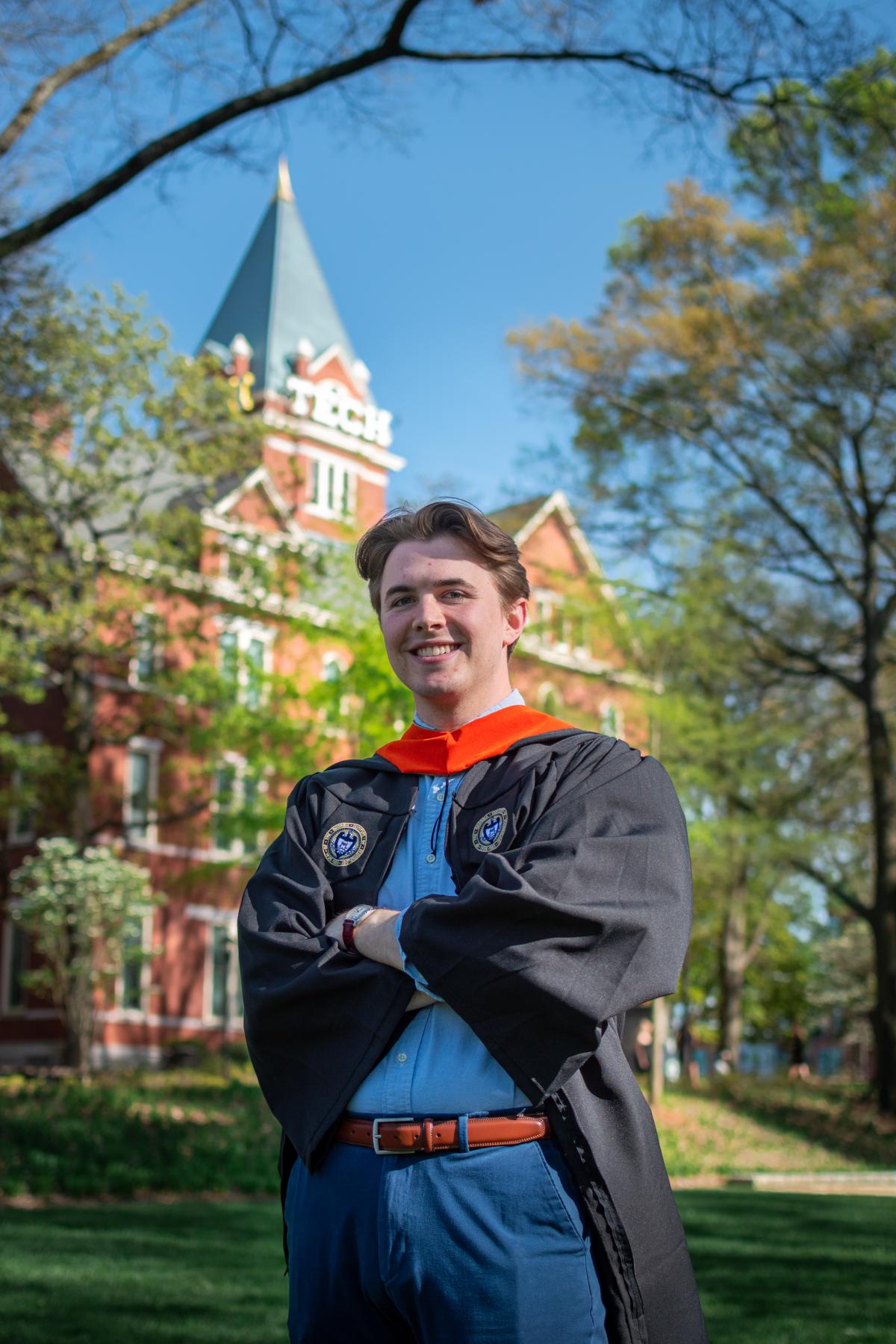
Paul Carter
Jacob Evans
BSAE 2023
What is your next adventure?
So, this summer, I’ll be doing an internship at Aerojet Rocketdyne in West Palm Beach, FL. It's where I was last summer, and they invited me back. I'm going to be part of a systems engineering team that does a lot of performance analysis and testing on the RL10 engines. They also do some other cool design projects. And then in the fall, I will start my Master’s degree at Georgia Tech as part of the BS/MS program with the goal of completing that within a year. The BS/MS program lets you count some classes for both degrees and helps you get a little bit ahead. So, I already have a few credits towards my master’s and hopefully, it won't be too much of a burden to get it done in a few semesters.
What about your next adventure are you most looking forward to?
I'm really excited to be back down in Florida this summer because I thoroughly enjoyed the work environment and the different projects that I did at Aerojet. They also have a big focus on space-based propulsion specifically for launch vehicles, which is a passion of mine that I've developed over the past couple of years. And they're located on the beach, which is a huge bonus.
I'm also looking forward to taking a deeper dive into some specific topics that I didn’t get to focus on in undergrad, specifically combustion, electric propulsion, and even deeper orbital mechanics. Those are all courses that you can take as a master’s student that I would find very rewarding for myself. And then obviously when you're doing a master’s, you can get more involved in research and do some pretty cool projects related to that.
Did you have any previous co-op, internship, or research experience in this area?
I was down at Aerojet Rocketdyne last summer. I had one internship before that at a mechanical design firm that was pretty interesting, but it wasn't really related to aerospace and
wasn't really my long-term passion. It was more of just a placeholder. But yeah, working at Aerojet last summer, I spent most of my time designing a vehicle demonstrator for nuclear electric propulsion. So basically, I was involved in mission architecture, design and planning, vehicle sizing, and working on incorporating a bunch of different parts that can go on a spacecraft. We created a mission to head to the moon LaGrange Point 2. It was really worthwhile, and I believe I'll be able to work on that some more this summer as well.
How did your educational experience at Georgia Tech help you to achieve your goals?
I feel really fortunate to be able to attend a school with such a rigorous and well-designed curriculum for aerospace. I know lots of schools offer aerospace engineering programs, but Georgia Tech just does it really, really well. As an undergrad, you're exposed to a lot of different topics within aerospace that can help you narrow down what you want to focus on and what you find interesting, and then hopefully what you're good at. When I entered Georgia Tech, I knew I was interested in aerospace as just a general concept, but I didn't really have any idea what specifically I wanted to do. I got involved in undergraduate research at the Combustion lab a couple of years ago. It really helped me focus on propulsion and combustion and what I want to do in my career.
The combination of strong academics from the classes and then being able to do research at the combustion lab has really given me a lot of I'd say, foundational skills for taking with me to the workplace. I think it's hard to overstate the experience that you gain from doing hands-on projects. So, at the combustion lab, being able to physically build rigs that can run combustion experiments and learn how to wire different sensors together was important. Also being able to use software like Labview and SolidWorks to help design parts really gave me useful experience.
What advice would you give to an underclassman who would like to follow the same path?
The first thing I would say is get involved and get involved early on at Georgia Tech. My biggest regret as an undergrad was not getting more involved in AE-focused clubs and organizations. There are a lot of really good ones, whether working at the maker space or participating in GT XR or YJSP. Those are all really great experiences that can not only give you some pretty good skills and hands-on experience in designing but can also help you form a better community at Georgia Tech and then within the aerospace program. Get involved with those clubs, they’re worthwhile, and the student leaders of those groups do a good job with them.
The second thing is to take time to enjoy yourself every now and then. It's so easy at school to bury your head in work and not take a break in life. Whether it's keeping in touch with friends, finding a new TV show to watch, or joining intramural sports, participating in those can just do so much for your mental and physical health. Enjoy your time at college and make the most of your four years. Taking some breaks every now and then can be beneficial.
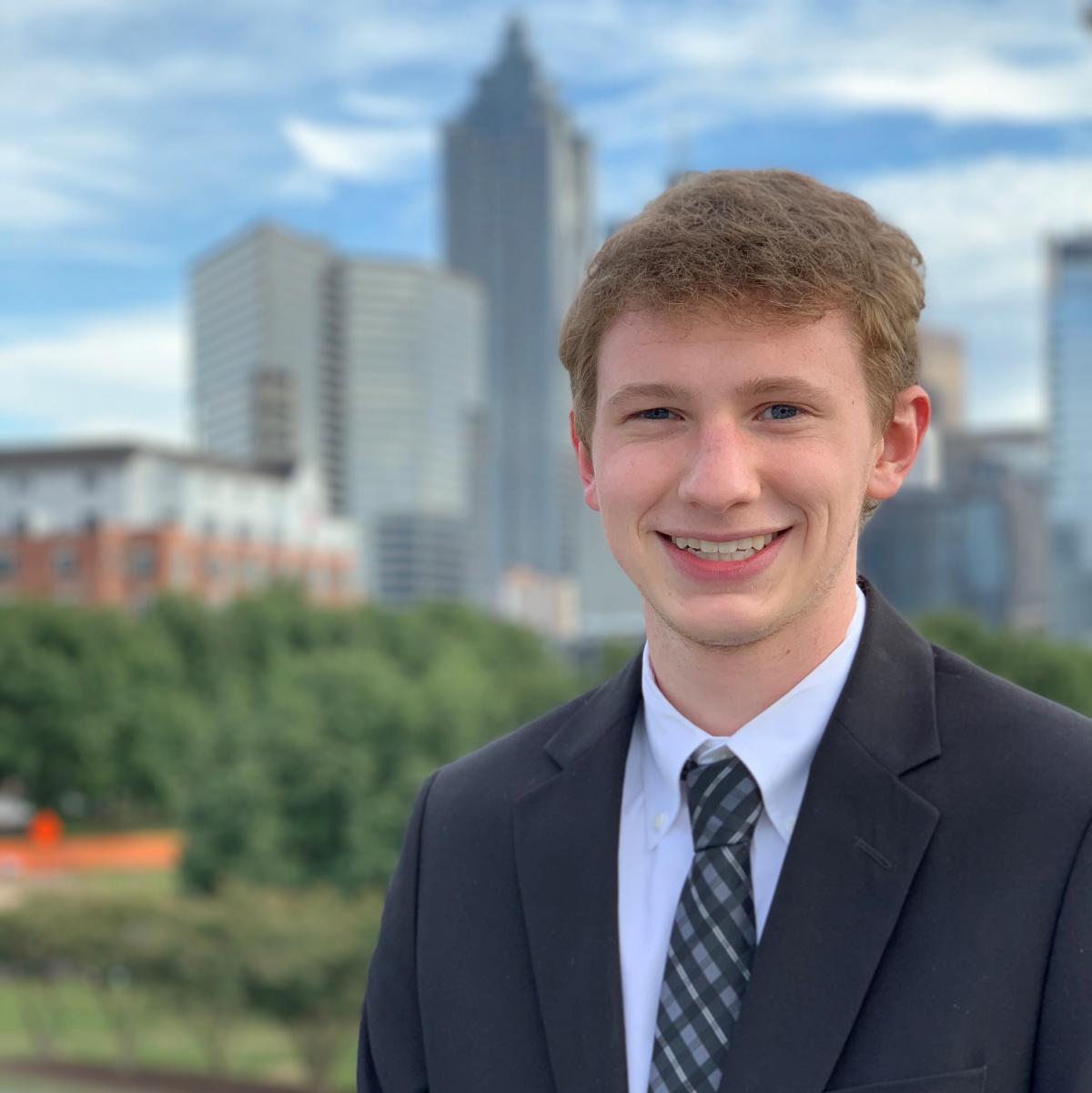
Jacob Evans
Mackenzie Glaser
MSAE 2023, BSAE 2021
What is your next adventure?
I will be joining SpaceX in Hawthorne, California as a life support systems engineer on the Starship program. My team will be supporting people on board Starship by providing water, breathable air, regulating temperature inside the capsule, basically everything you need to keep people alive is what my team does.
What about your next adventure are you most looking forward to?
I’m really excited to be in the SpaceX environment and joining a really, really new team. We are in the early stages of development so there’s a lot of opportunity to take ownership of the hardware and hands on testing. I recently got to visit the lab and they are doing a lot of cool testing and starting to develop the hardware. I think it’s really cool to be in a team sort of at the beginning of that process and get the chance to work on rapid design and things like that.
Did you have any previous co-op, internship, or research experience in this area?
I’ve had a few internships over the years to figure out what I actually like to do. I got to work at NASA Kennedy on grounds systems engineering and later made my way over to Blue Origin, where I interned twice; the first time as a crew systems intern and the second as a New Glenn mechanical systems intern.
As a crew systems intern, I worked on New Shepherd, which needs to support humans for short duration flights. We had to determine things like, how do you keep people safe? how do you keep them comfortable? What material should the seats be made out of? So, I got to learn a little about how to design lift support systems. I specifically worked on thermal modeling for that system, so say there’s a hold on the launch pad, how hot is it going to be for those sitting in the system?
I discovered that I really like thinking through those types of problems. I was so excited to go to work every day, being able to see the different interdisciplinary problems and working towards a solution was all very rewarding.
My research in the Space Systems Design Lab (SSDL) has been focused on small sat research, including both cold-gas and green monopropellant thruster systems. It’s not exactly the same area that I will be working on at SpaceX, but it does have a lot of the same kind of problems like, understanding how heat moves through the system. We need to understand how to do mechanical design of a fluid system, which is on a very technical level. Fluid systems are everywhere, so you can apply that to the propulsions system as well as areas that will house humans in space.
How did your educational experience at Georgia Tech help you to achieve your goals?
A number of the classes that I took at Georgia Tech were applicable to what I will be doing in my new job, especially the options courses that I chose to take. The flexibility in the master’s program to choose classes really helped as well. I knew I wanted to get good at heat transfer since that’s a really important part of life support and space systems in general. I was able to deliberately pick undergrad options and grad courses that exposed me to that. There are a lot of opportunities to take classes that align with what may interest you and skills that the industry needs.
I’ve been doing research in the Space Systems Design Lab (SSDL) with Dr. Lightsey since my third year of undergrad and it’s been hands down, the most valuable experience. I got the chance to learn from AE graduate students when I was an undergrad, work directly on hardware, and now I lead a team of propulsion engineers and teach undergrads as a graduate research assistant.
I have learned an enormous amount in the lab and I think it’s turned me into a much more competent engineer than I would have been otherwise, because I am responsible for making sure that hardware get out the door and making sure that design gets done and is done well.
What advice would you give to an underclassman who would like to follow the same path?
Take advantage of every opportunity you can, as early as you can. It’s never too early to do your first internship, start doing research, or join one of the project-based student organizations on campus. It’s never too early to get real hands-on or industry experience because the sooner you do that, the more you can build your resume and have a better chance of choosing where you want to go in the future. Georgia Tech will give you so many opportunities just because you’re a student here and as an aerospace engineering student it will get your foot in the door a lot of the time. The first internship I did was not what I ultimately wanted to do with my career, but it was a real experience and helped get to where I am today.
Instead of comparing and competing with your classmates, reframe your mindset to see them as resources. As an undergrad it can be really intimidating and easy to compare yourself to other people especially when you fail a test or don’t get an internship. Instead, ask for help, or form a study group and if you have a friend who has done five internships, ask them to review your resume ask for their advice. As someone who has gotten through the program successfully, I am so grateful for the people who I have worked with throughout the program, and they have been such a huge part of me being successful. Some of my best friends now are people that I met in the program just because we studied together every night and we’d read each other’s resumes and help prep for interviews and I think it’s such a big advantage.
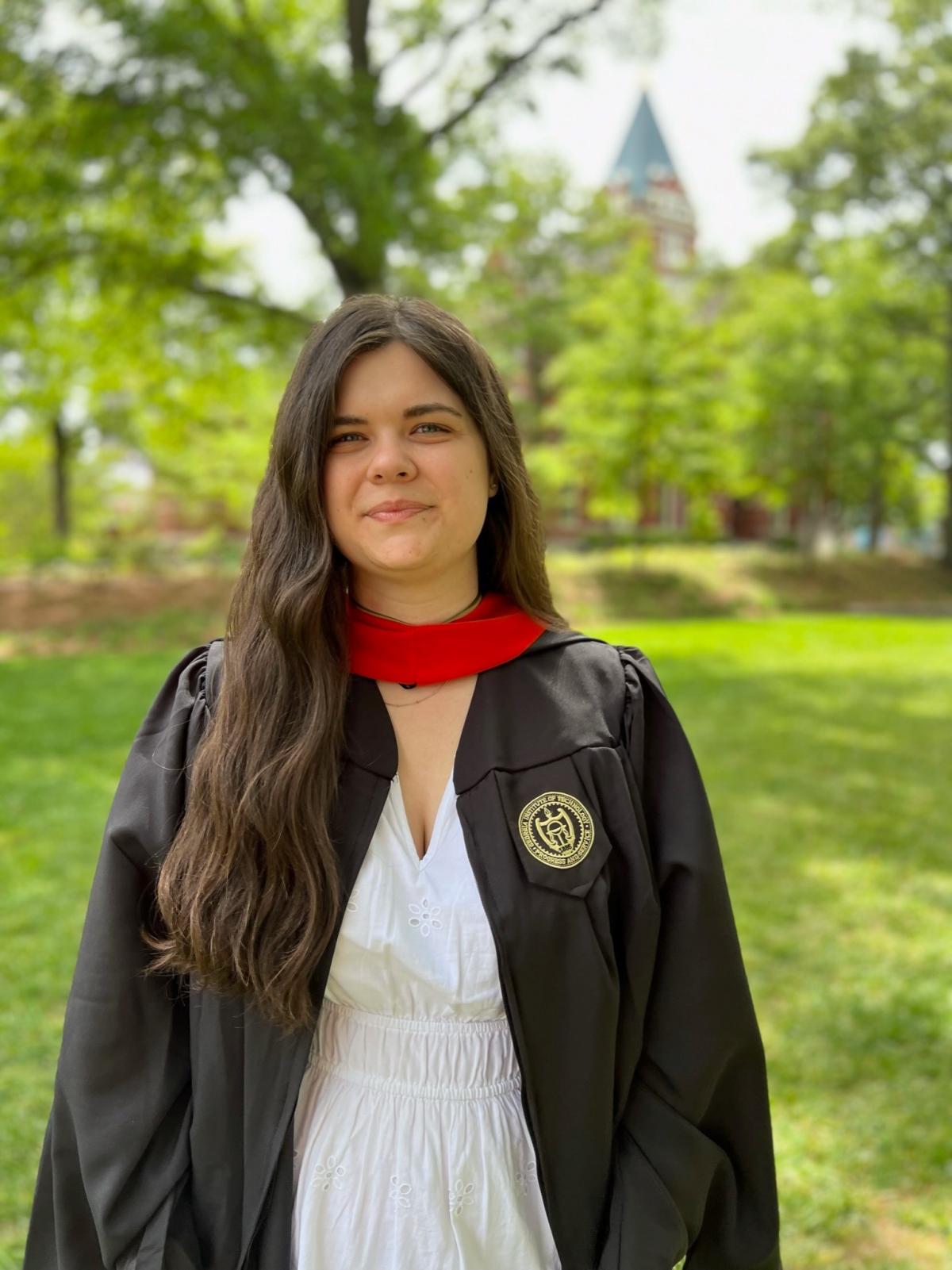
Mackenzie Glaser
Elton Shinji Okuma Hayachiguti
MSAE 2023, BSAE 2021
What is your next adventure?
I’ll be staying at Georgia Tech and pursuing my Ph.D. with the Aerospace Systems Design Lab (ASDL) under Dr. Dimitri Mavris.
What about your next adventure are you most looking forward to?
During my master’s I managed to work on different topics, so I was exposed to many different fields within aerospace. One of those being model based systems engineering (MBSE). I’m excited to continue my research in MBSE and finish my thesis topic.
Did you have any previous co-op, internship, or research experience in this area?
As an undergrad and as an international student (from Sao Paulo, Brazil), getting an internship in aerospace was quite challenging, but I did undergraduate research throughout most of my undergrad. I was able to try out new things and see what I liked and what I had the most fun with and got to experience a few labs. I did research with Dr. Sankar in computation fluid dynamics (CFD) and then later got involved with the ASDL. One thing I really like about ASDL is the industry focus and applied research.
How did your educational experience at Georgia Tech help you to achieve your goals?
The AE School has a very diverse program. During undergrad, I was able to work hands on and work on with multiple projects, as well as a variety of experiences. Through the graduate program, I’ve been able to work on projects with Airbus, Saab, and Delta.
It’s been very helpful in making me understand each one of them better and helped me choose what I wanted to do and study in graduate school and beyond.
I’ve been part of the design, build, fly (DBF) team and it was very fun experience too. I got to work on aircraft, which also helped me decide what area of aerospace I ultimate want to specialize in.
What advice would you give to an underclassman who would like to follow the same path?
Try out different things. Sometimes it might feel challenging, especially for international students, but if you stick with it, doors will open and the more education you get, the more skills you gather. I think that helps better the opportunities you will have after graduation.
Reach out to upper classmates and other international students and get their advice, because their experience can help you as a guide. Professors too. They all have very good experiences and a good perspective on paths you can take.
Explore areas outside of the aerospace bubble at Georgia Tech. One semester I studied abroad at Georgia Tech Lorraine and got to see different options and have a new perspective.
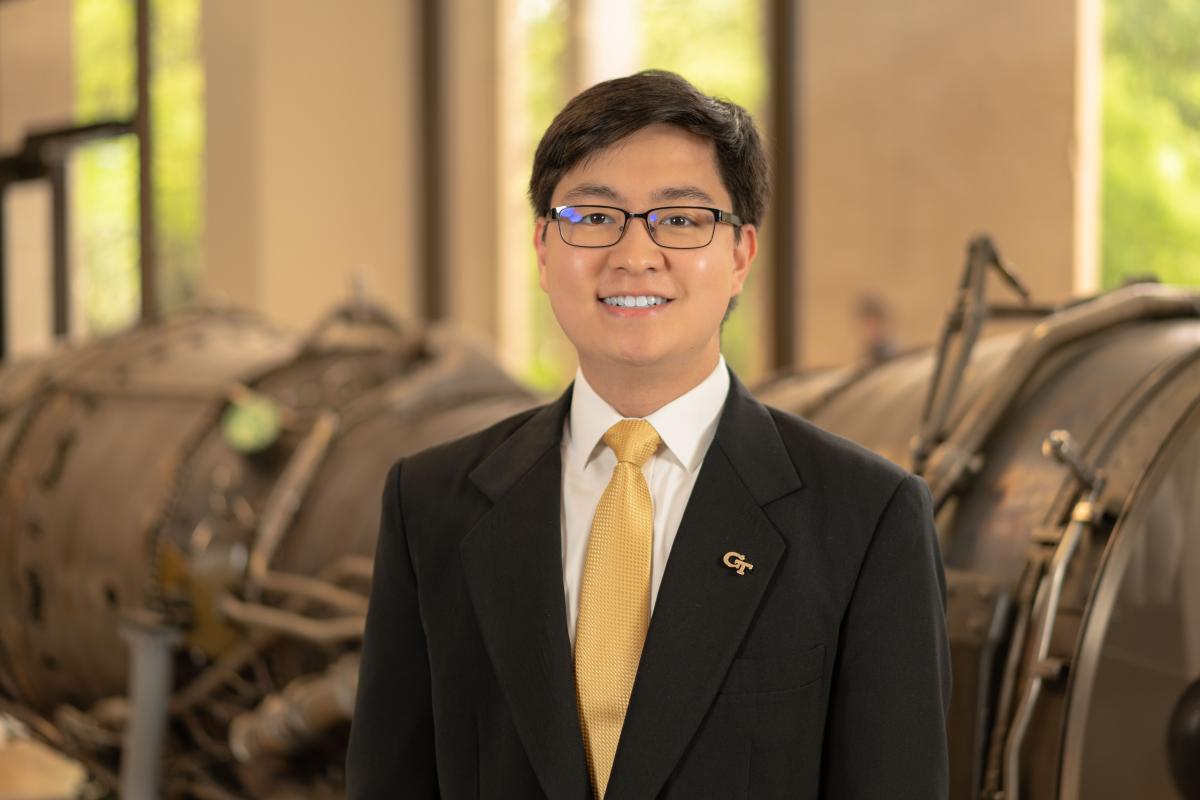
Elton Shinji Okuma Hayachiguti
Mollie Johnson
BSAE 2023
What is your next adventure?
I'm super excited to be working at a NASA Jet Propulsion Laboratory this summer in Pasadena, CA. I'll be working on the near Earth Object Surveyor mission, also known as NEO Surveyor, where I'll be a flight systems intern. In the fall I'll be attending school at the Massachusetts Institute of Technology (MIT) for my master’s degree in Aero Astro. I'll be conducting research with the Engineering Systems lab.
What about your next adventure are you most looking forward to?
The internship at NASA is my first, and I'm super excited to actually get out into the field and have that first industry experience. I feel like I've been in school for so long. Plus, I know a bunch of people from my lab or friends that have actually gone on to work there full-time. So, I look forward to reconnecting with them in California.
I'm also excited to explore Boston this fall because I feel like it's a very different vibe from anywhere else that I've lived before but in a good way.
Did you have any previous co-op, internship, or research experience in this area?
I have not had an internship yet, but I’ve done research in my current lab, the Space Systems Design Lab (SSDL) under Dr. Lightsey for the past two years. I've been working with the Lunar Flashlight team and mission operations team at SSDL on real missions. We take care of operating the spacecraft essentially every time that we contact the spacecraft and pull data down. We have to kind of interpret it. And we are also in charge of making sure that our spacecraft does the right propulsive maneuvers when it needs to in order to try to get to the moon. Our Lunar Flashlight research team basically works with JPL already, which is kind of how I got the internship. Basically, it has been a lot of systems engineering type work, and project management too.
How did your educational experience at Georgia Tech help you to achieve your goals?
Our curriculum here is very robust and I was able to have exposure to a lot of different topics, which was really good, even though I wasn't in love with all of them. That's okay because at least you know, I had the experience to tell whether I liked this field or not. Having that exposure was valuable. Georgia Tech is just a really great place to be in terms of opportunities and networking with industry partners. Also, with the Lunar Flashlight, we were the first undergraduate team to have ever commanded an interplanetary NASA spacecraft. You literally will not find that anywhere else.
What advice would you give to an underclassman who would like to follow the same path?
To get out and meet people. I know we all can stay in our own little bubbles and get caught up in whatever it is we're doing. It's so important to have an outlet aside from just school where you can relax and be yourself. And aside from meeting people, it's also a great way to network and you never know what opportunities will arise the more people you meet.
Secondly, I would say it's important for students to know that they're not imposters when they come to the school. Being surrounded by talented people can make you feel like an imposter. Nobody here is an imposter. Everybody grows at their own pace. It's not fair to compare yourself to other people when you're the only person in the world that's been going through exactly the same things that you've been going through with the same background as you.
Finally, it's okay to be behind the curve, ahead of the curve, or to BE the curve; everybody goes at their own pace. I'm a great example of this. I've never had an internship until after I graduated. Before, I would think that everyone around me has had internships and I would feel bad about myself. In the end, I realized it was great for them, but that's just not what was in the cards for me. It worked out in the end anyway.
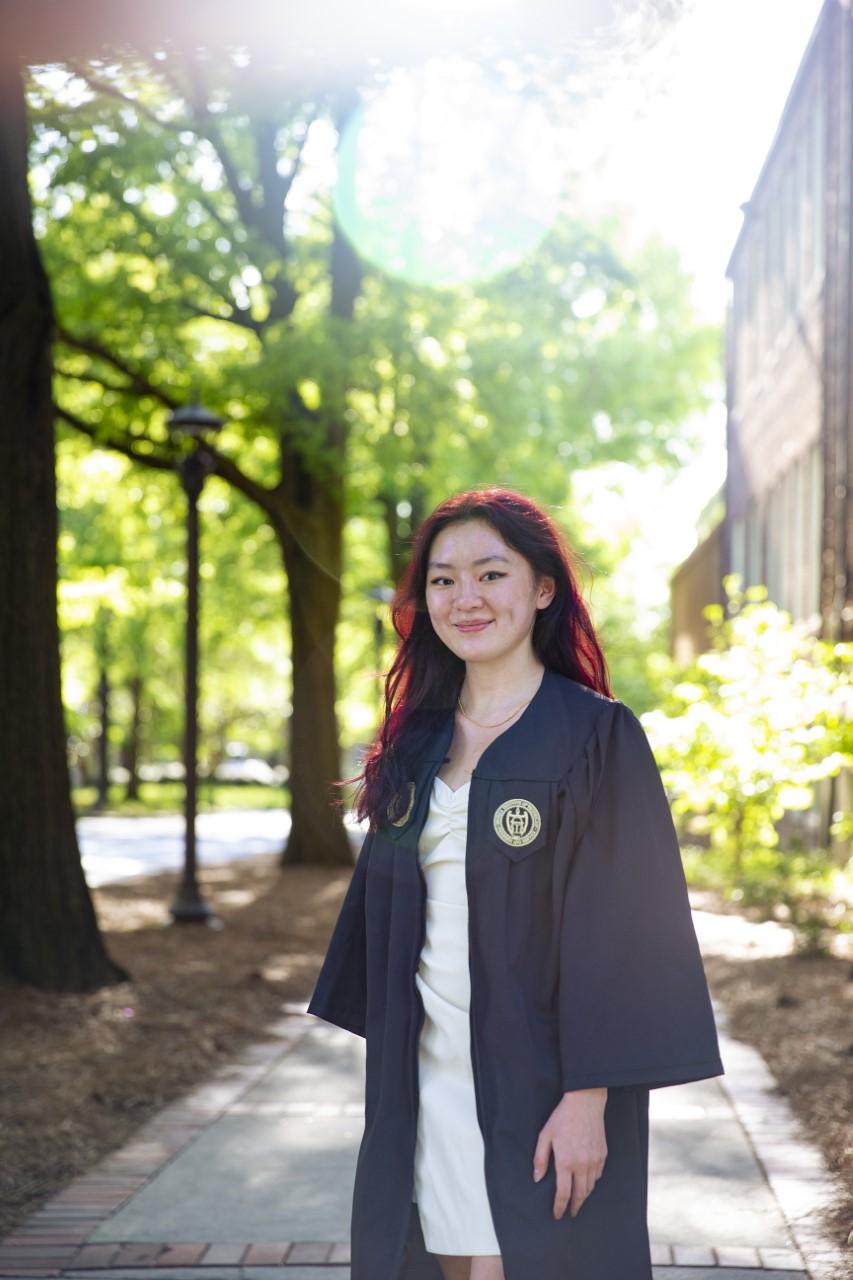
Mollie Johnson
Esma Karagoz
PhDAE 2023, MSCSE 2022, MSAE 2020
What is your next adventure?
I finished my doctoral degree requirements at the beginning of the semester, so I was able to start my adventure a little early. In January, I started as an assistant professor at Illinois Institute of Technology teaching an undergraduate aerospace propulsion course.
What about your next adventure are you most looking forward to?
I’m excited to start a new chapter after graduate school. I’ve been living in Georgia for the past seven years as a graduate student, so I’m looking forward to going into academia and applying for research grants, teaching, and having my own lab.
I’ve already started receiving emails from students interested in working with me, which has been pretty exciting. I’m in the process of building my lab and then getting all of the equipment, so it’s an exciting time.
Did you have any previous co-op, internship, or research experience in this area?
I taught aerospace propulsion this semester, but my research was mostly in systems engineering with the Aerospace Systems Design Lab (ASDL). I worked on projects with Airbus, conducting research on model-based systems engineering (MBSE) and aircraft design. It ended up being the most interesting to me so I came up with a novel idea and pursued my thesis after that project. I also worked on a NASA project for hybrid propulsion systems and participated in several other interesting research areas in ASDL.
How did your educational experience at Georgia Tech help you to achieve your goals?
In my research, I used computational techniques and found out that there’s a joint program at Georgia Tech with computational science and engineering (CSE) and aerospace engineering. I participated in that and that’s how I got a second masters. It really helped me learn the concepts that I used in my aerospace research and apply them.
Also, my advisor, Prof. Mavris, taught me how to convey my ideas efficiently, to be able to explain research to people from different backgrounds. This skill helped me when I was looking for jobs as well, because with academic jobs you need to be able to explain your research to other people and one of the most important things is that you can explain it well and that people can understand you.
What advice would you give to an underclassman who would like to follow the same path?
Networking is really important. Getting to know people in your area and then getting known in that area is very important, but it happens gradually. This is something to keep in mind throughout the grad school process. Whenever you have a chance to participate in a conference, or you meet with a professor in your area and would like to talk about your research, it’s best to take those opportunities.
Plan. Planning is really important especially when seeking a career in academia. When you’re applying for academic positions, you need to create so many materials in order to apply. That includes cover letter, research statement, teaching statement, and so on. Georgia Tech has CETL (Center for Teaching and Learning) and they were a really helpful resource for me in terms of their workshops. I also took some classes from them, and they went through my application materials and taught me how to prepare them. If you want to pursue an academic career, I recommend getting involved with CETL. For instance, I started my search almost a year before I needed to apply so that I could create the best materials. Look at it as an iterative process. You create your materials, you get feedback from your colleagues or your professors and then you revise them many times until you apply.
For international students: Try being open minded and don’t get too anxious. As an international student I was very afraid of not being able to find a job because of citizenship requirements. I was anxious all the time, but looking back there were a lot of opportunities to explore, so be open minded to the opportunities around you. You can go somewhere and get experience and build your background and possibly come back to those opportunities that you couldn’t get before or find new ones.
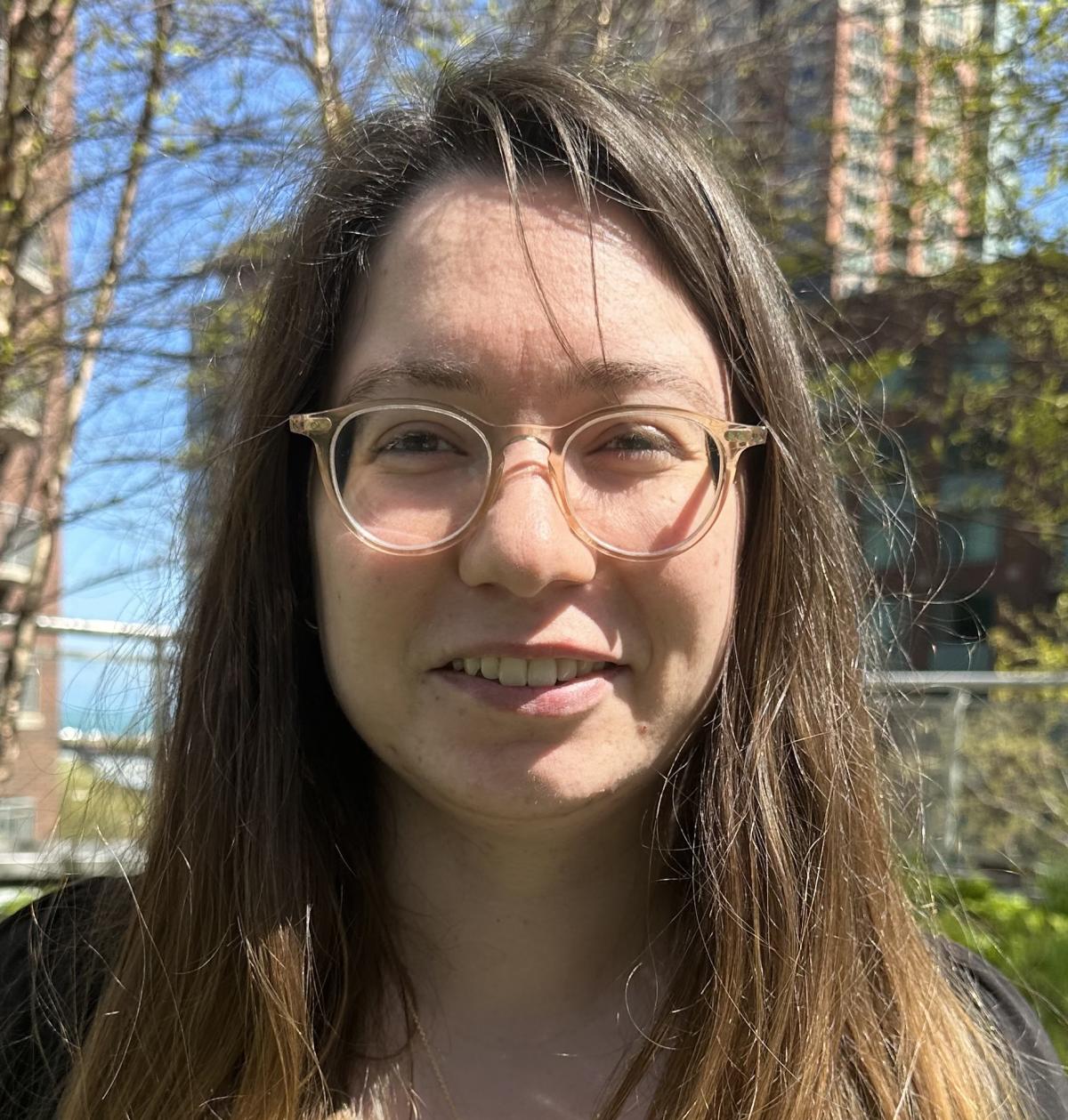
Esma Karagoz
Ishan Padmani
BSAE 2023
What is your next adventure?
I am going to be an aerodynamics engineer for Boeing starting in July. I'm moving up to Tukwila, WA, which is a little bit south of Seattle. It's pretty close to the city, but far enough away to have a peaceful nightlife. I’ll be working right at Boeing Field, which is next to The Museum of Flight. I plan to be in industry for quite a while and see how it goes. If in the future there is potential for me to get my master’s sponsored, I would do it. But right now, I want to work in industry.
What about your next adventure are you most looking forward to?
Seeing a new place. I've been in Georgia for most of my life, so living and working somewhere else is something that I've been looking forward to for a very long time. It's time to take my skills and actually put them to use. My start date is July 14th, so probably a few weeks before that, I'll move and get settled. I’ve been researching and learning about the area. They're going to pair me with a consultant, and we'll figure things out from there. My family and I will visit in a couple of weeks in May just to see what the area is like and get a first-hand view. I have a couple of friends who are interning there this summer, so we plan to spend some time together as well.
I’m also looking forward to the work at Boeing. Part of the draw with the aerodynamics position is that I'll be doing a little bit of everything, not just aerodynamics. So, I will be doing a lot of design and flight testing as well. So, my hope is to eventually in the future move on from aerodynamics into flight testing. I like it because it tells you how the vehicle will behave in the air. It tells you what parts can be optimized. It helps with designing the aircraft as well because you take a look at the aerodynamics and say this is the most optimal for cruise and passenger aircraft but you can take a look at it again and see other benefits from it.
Did you have any previous co-op, internship, or research experience in this area?
I don't have any coop or internship experience, but I do have research experience. I was with the German Research Group with Dr. Brian German. We did a lot of eVTOL aircraft design during the fall and spring semesters, and he allowed me to work for him flight testing the vehicle that we created in the summer. It showed me that flight testing is what I wanted to do.
How did your educational experience at Georgia Tech help you to achieve your goals?
Georgia Tech has given me a lot of resources. The curriculum does a good job gauging what interests you because you're not focused on one central thing. You gain experience in controls, configuration aerodynamics, aerothermodynamics, flight testing and CFD, among other things. All of the classes here showed me what I was most interested in while also giving me a little bit of experience in design and controls.
Design-Build-Fly (DBF) also contributed greatly to my experience here at Tech. It was at DBF that I could put what I learned in class to use as well as apply the entire engineering cycle. DBF showed me how to design, build, test, and iterate on a system in a large team setting.
What advice would you give to an underclassman who would like to follow the same path?
I would say take a lot of the correct classes in terms of your options because while most of the curriculum does give you a good breadth of knowledge, your options are where you can explore your interests. Classes like CFD, configuration aerodynamics, aerothermodynamics and flight testing are all very good options classes if you're interested in aerodynamics. But there are other options like Introduction to Avionics integration and Robotics and Autonomy if you are interested in, say, controls, so finding the right option for you helps a great deal.
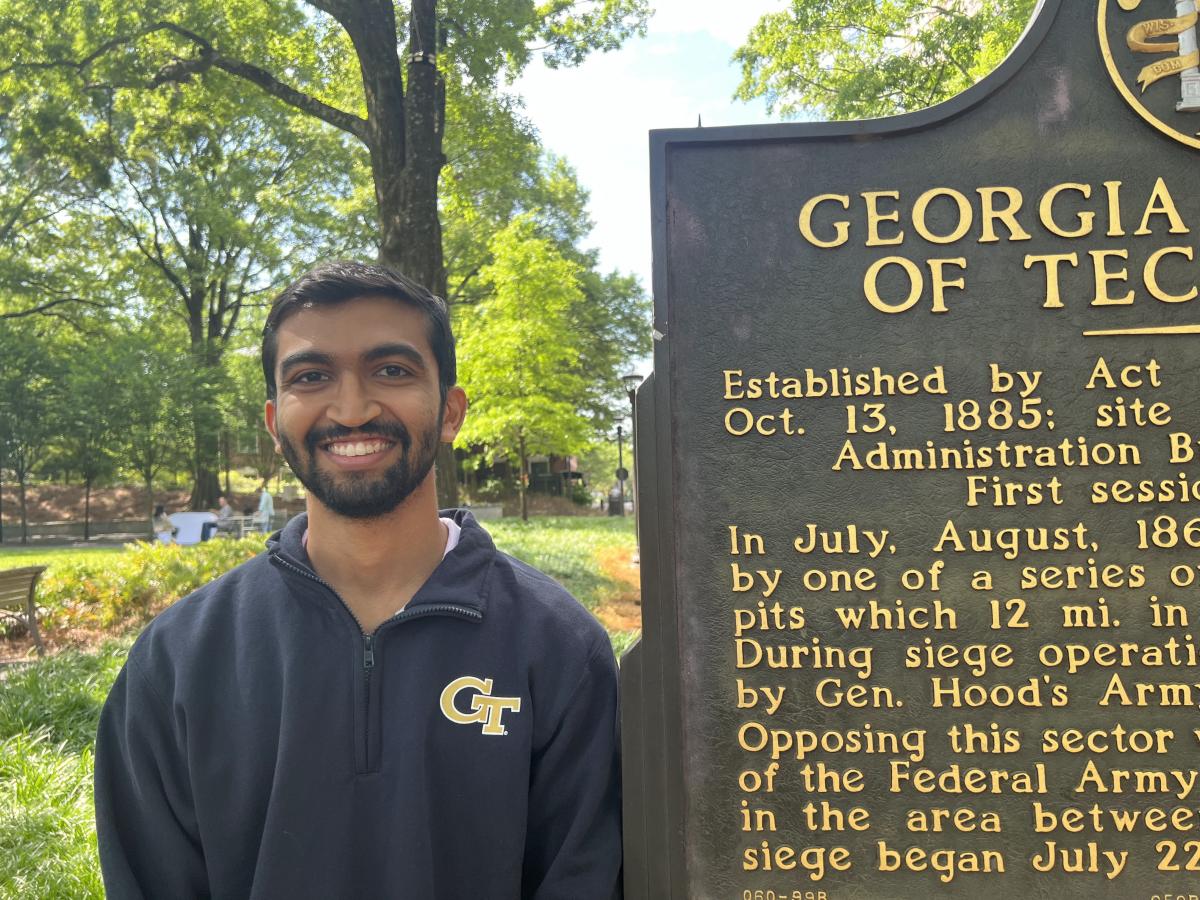
Ishan Padmani
Olatunde Sanni
PhDAE 2023, MSAE 2019
What is your next adventure?
I’ve already started my adventure as a senior professional staff at Johns Hopkins’ Applied Physics Lab.
What are you most excited about your next adventure?
I love solving puzzles, that’s why I choose engineering. Whenever there’s a problem that tough to crack, I get excited about that. Most people may not like the challenge, but I tend to prefer challenges like that, so for me I’m excited about my research and the ability to explore something novel. To see the impact that new algorithms could have in the area of urban air mobility is exciting.
Also, I’ll be able to continue post-doc research thanks to the ACCESS program sponsored by the National Science Foundation (NSF). I’ll be able to keep exploring the problem I was looking into throughout my graduate research through large-scale simulations.
Did you have any previous internship, co-op, or research experience in this area?
I interned at the Georgia Tech Research Institute (GTRI) and later made the transition to full-time as a graduate researcher. My research is focused on multi-agent systems, more specifically I was looking at urban air mobility and the trade-off between safety and performance.
How did your educational experience at Georgia Tech help you achieve your goals?
I was fortunate because when I started as a graduate student at Georgia Tech, I received the Georgia Space Grant Consortium Fellowship, which allowed me to participate in many volunteer opportunities for STEM and it helped me network and meet a lot of people, but also helped me to see the impact it could have on future generations.
Working in the DCL lab was a good learning experience, but also the students I was around I learned so much from them and made great friendships through that. My advisor Eric Feron was great and knew the field very well and gave me great research experience.
What advice would you give to an underclassman who would like to follow the same path?
Find something you are passionate about, something that you wouldn’t even consider a job because you enjoy doing it.
Take the opportunity to ask questions as much as you can and try to learn as much as you can. There’s no bad question, so don’t be too shy to ask a questions.
Find a hobby you are interested in. When you’re in school, there are so many clubs and activities you can get involved in. Once you get out of school, you’ll find you have a lot more time on your hands.
(text and background only visible when logged in)
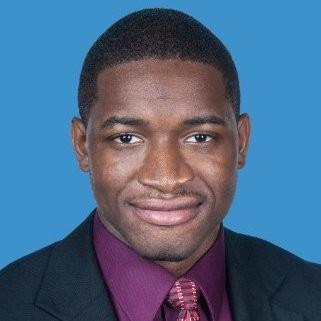
Olatunde Sanni